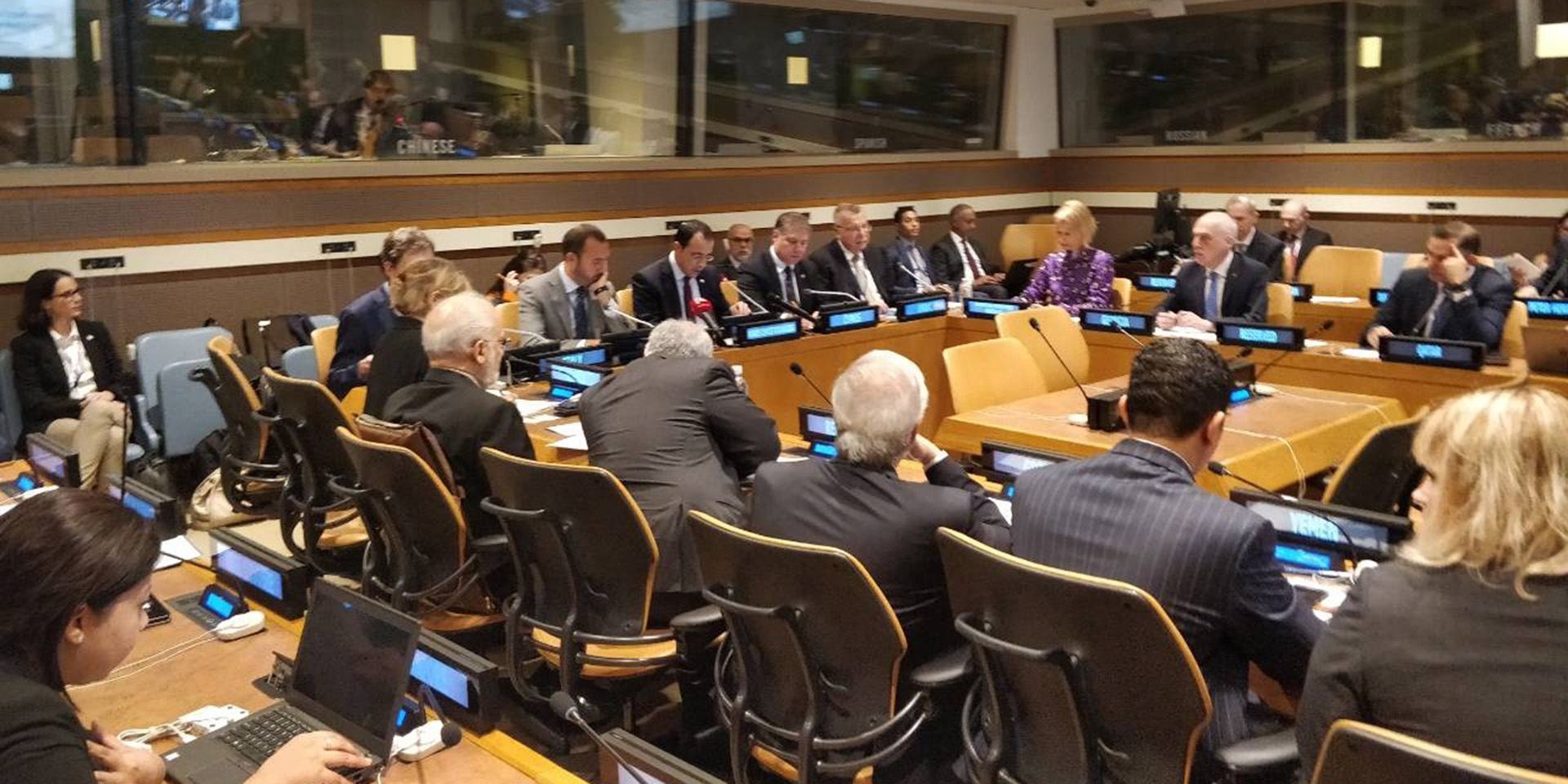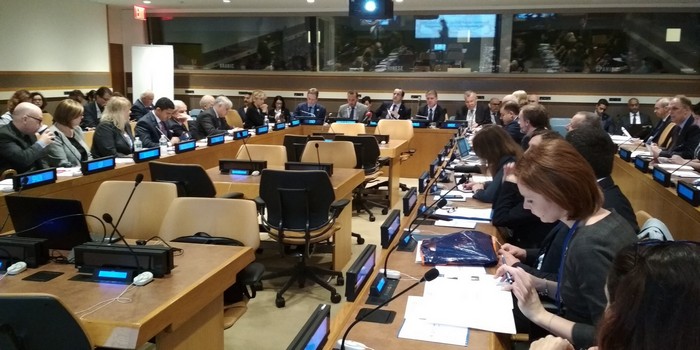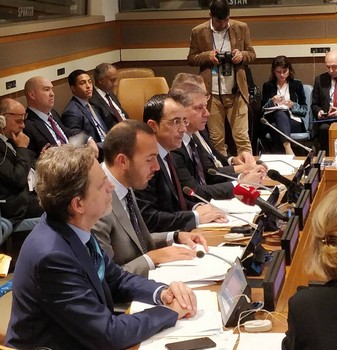Press Releases
26-09-2018 16:33
Address by the Minister of Foreign Affairs, Mr Nikos Christodoulides, at the Ministerial Meeting of the Group of Friends for the Protection of Cultural Heritage, in New York
It is an honour and a privilege to welcome you to this important first Ministerial meeting of the “Group of Friends for the Protection of Cultural Heritage”; a Group which was recently established in the context of the United Nations, on the initiative of Cyprus and Italy, and which already includes members from all regional groups.
I wish to take this opportunity to warmly thank our Permanent Representatives and all those who worked diligently in setting up this group.
Our aspiration is that this Group will serve as a platform for revitalizing international interest and raising awareness for the need to protect cultural heritage worldwide and act as an informal space for cooperation and exchange of ideas on this crucial topic.
The preamble of the 1954 Hague Convention for the Protection of Cultural Heritage in the Event of Armed Conflict states: “damage to cultural property belonging to any people whatsoever means damage to the cultural heritage of all mankind”. The loss is collective, and therefore action to prevent such a loss should also be collective.
It is our hope that within this Group we will share best practices, increase our synergies and discuss the implementation and strengthening of the international and national legal frameworks and efforts for protection.
The destruction, looting and theft of invaluable material treasures has consequences that go beyond the violation of fundamental human and cultural rights and transcends borders. The looting and theft of cultural heritage is not only motivated by financial profit. In many cases is also associated with the financing of terrorist groups and organized crime.
In most cases the intentional destruction of cultural heritage of a community also aims towards eliminating and erasing collective memory. That is why the images of the destruction of Palmyra by DAESH, or the destruction of World Heritage buildings in Timbuktu, Mali –a case for which we had the first conviction by the International Criminal Court- are a call for action.
Both Italy and Cyprus are privileged to host a remarkable and invaluable cultural heritage dating back to thousands of years. Cyprus has a long and painful history of its cultural heritage being destroyed on purpose, or plundered, in the years before Cyprus’ independence, as well as the ongoing military occupation of the northern part of Cyprus since 1974. These experiences have rendered Cyprus not only an interesting case study but have also allowed the Cypriot stakeholders to accumulate unique expertise in this domain.
Cyprus actively promotes the adoption of measures against the destruction and illicit trafficking of cultural heritage in all fora, as well as bilaterally. In addition to bilateral MoUs, Cyprus has successfully worked for the unanimous adoption of the Resolution «Cultural rights and the protection of cultural heritage» in 2016 and 2018 in the UN Human Rights Council.
Another example of which we are very proud, is the adoption, in 2017, of the Council of Europe’s Convention on Offences Relating to Cultural Property, also known as the “Nicosia Convention.” The initiative was the landmark achievement of the Cyprus Chairmanship of the Committee of Ministers of the Council of Europe in 2016-17.
This is a unique legal tool for combating the destruction of cultural heritage; it is the first international legal text which incorporates a criminal code for perpetrators who destroy steel or trade cultural heritage treasures. Key characteristics of the “Nicosia Convention” include the fact that the burden of proof lies with the buyer or possessor of the artifact, and that it provides for the harmonization of national legislations, in order to promote and facilitate inter-state cooperation.
We are very pleased that a few weeks ago, Mexico became the second country to ratify the Convention, after the Republic of Cyprus, while eight other states are signatories.
The Convention is open for signature and accession by Members and non-member states of the Council of Europe. Our aim is to make this new instrument truly universal. I call upon all of you to become a party to the Nicosia Convention.
In the very near future, we intend to host in Cyprus, a high level meeting of all interested parties and stakeholders to discuss on how better to follow up with concrete measures our efforts in this field.
In concluding, I warmly urge you all to join the “Group of Friends for the Protection of Cultural Heritage,” to actively support its objectives, and help in the efforts of the international community to protect our common global cultural heritage.
-----------------------------
RM/MKY/II
Relevant Press Releases


29-03-2025 14:57
Travel Advice of the Ministry of Foreign Affairs for South Sudan

28-03-2025 12:16
The Ambassador of Cyprus to Thailand presented his credentials

28-03-2025 12:13
The Ambassador of Cyprus to Iraq presents his credentials






